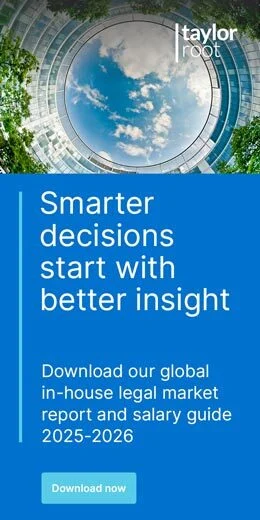Healthcare M&A in the US: Strategic shifts and the rising demand for General Counsel talent
The US healthcare industry is booming, driven by a surge in mergers and acquisitions (M&A) activity. From hospital systems consolidating to private equity firms targeting specialty practices, the landscape is being reshaped by strategic M&A deals aimed at improving operational efficiency, expanding market share and adapting to evolving care models. This wave of dealmaking is impacting healthcare providers across the ecosystem, from acute care hospitals to home health networks and is creating ripple effects in valuations, pricing and legal hiring.
As M&A trends accelerate, one critical consequence is the growing demand for legal expertise, particularly in the form of General Counsel (GC) roles. These professionals are now central to navigating complex transactions, regulatory changes and digital transformations.
The current state of healthcare M&A activity
Healthcare M&A activity in the US has rebounded strongly in the second half of 2025 following a period of macroeconomic volatility. According to Capital IQ, while deal volume remained relatively stable, total deal value surged by over 50%, reflecting a shift toward larger, more strategic transactions. Acquirers are increasingly focused on expanding service lines, building outpatient networks and investing in virtual care platforms.
Key trends include:
- Platform-building and outpatient expansion: Health systems and providers are prioritizing scalable healthcare services and regional bolt-on acquisitions over large hospital purchases
- Digital health and AI: Investment in telehealth, diagnostics and AI-driven workflows continues to grow
- Private equity resilience: Despite rising interest rates, PE firms remain active, targeting portfolio companies in specialties like dermatology, orthopedics and behavioral health
- Regulatory scrutiny: The Federal Trade Commission (FTC) and Department of Justice (DOJ) are closely monitoring partnerships and consolidation, especially among for-profit healthcare providers
- Divestiture strategies: Some health systems are shedding non-core assets to improve EBITDA margins and focus on value creation
These dynamics are not just reshaping care delivery, they are also altering the legal and compliance landscape, creating new challenges and opportunities for legal professionals.
Why General Counsel roles are in demand
As healthcare organizations pursue M&A strategies, the complexity of these transactions has elevated the role of the General Counsel. No longer confined to contract review and compliance oversight, GCs are now strategic advisors, risk managers and integration architects.
Here are the key drivers behind the surge in GC hiring:
Regulatory complexity
Healthcare M&A deals are governed by a dense web of federal and state regulations. From Stark Law and the Anti-Kickback Statute to HIPAA, Medicaid and Medicare compliance, legal pitfalls abound. GCs are essential in navigating these risks, ensuring that deal structures comply with all applicable laws and avoiding costly post-closing liabilities. The evolving regulatory environment demands constant vigilance and adaptability.
Due diligence and risk mitigation
Buyers are conducting deeper due diligence than ever before. This includes reviewing payer contracts, compliance programs, cybersecurity protocols and operational workflows. GCs play a central role in preparing organizations for scrutiny, cleaning up documentation and identifying red flags that could derail a deal.
Post-deal integration
Successful M&A is not just about closing the deal, it is about realizing value through integration. GCs are increasingly involved in post-merger planning, including cultural alignment, IT integration and continuity of healthcare services. Their input helps avoid legal disputes, ensure regulatory compliance and maintain trust among employees and patients.
Private equity governance
PE-backed healthcare deals often come with complex governance structures, performance-based earnouts and tight post-closing controls. GCs are critical in negotiating these terms, protecting the interests of Physician-Owners and ensuring that clinical autonomy is preserved.
Cybersecurity and data protection
With the rise of digital health, cybersecurity has become a dealmaker or breaker. GCs are tasked with conducting audits, ensuring HIPAA compliance and drafting robust data protection policies. A weak cybersecurity posture can reduce valuations or kill a transaction entirely.
The changing profile of healthcare General Counsel
The evolving demands of healthcare M&A are reshaping the profile of the ideal GC candidate. Organizations are seeking legal leaders with:
- Specialized healthcare experience: Generalists are no longer sufficient. GCs must understand the nuances of healthcare law, including reimbursement models, clinical operations and regulatory frameworks
- Strategic acumen: Legal expertise alone is not enough. GCs must be able to advise on business strategy, assess market risks and contribute to growth planning
- Integration skills: Post-deal success depends on smooth transitions. GCs must be adept at managing change, aligning cultures and resolving disputes
- Digital fluency: With AI, telehealth and virtual care on the rise, GCs must understand the legal implications of emerging technologies
Implications for hiring and talent strategy
The demand for healthcare GCs is creating ripple effects across the legal talent market. Law firms are expanding their healthcare M&A practices and in-house legal departments are growing to meet the needs of increasingly complex organizations.
Key hiring trends include:
- Increased competition for talent: Experienced healthcare GCs are in short supply, driving up compensation and prompting aggressive recruitment strategies.
- Internal promotions and upskilling: Organizations are investing in training and development to prepare Mid-Level Attorneys for GC roles.
- Cross-sector recruitment: Some healthcare companies are hiring GCs from adjacent industries like life sciences and insurance, seeking transferable skills in compliance and risk management.
Challenges ahead
Despite the opportunities, GC hiring in healthcare M&A faces several challenges:
- Talent shortages: The pool of qualified candidates is limited, especially those with deep healthcare experience
- Retention risks: M&A can be disruptive, leading to turnover among legal teams. Retention bonuses and clear career paths are essential
- Cultural fit: Legal leaders must align with the organization’s mission, values and clinical priorities. Misalignment can lead to friction and inefficiency
What does this mean for General Counsel hiring in healthcare?
Healthcare M&A trends in the US are reshaping the industry and the legal profession along with it. As deal activity becomes more strategic, complex and scrutinized, the role of the General Counsel has never been more critical. From regulatory compliance to post-deal integration, GCs are at the heart of successful transactions.
For healthcare providers, investing in legal leadership is not just a defensive move, it is a strategic imperative. And for legal professionals, the M&A wave presents a unique opportunity to step into transformative roles that shape the future of healthcare services, value-based care and operational efficiency.
How Taylor Root can help you hire a General Counsel for your healthcare company
Taylor Root is a leading legal recruitment consultancy with a strong presence in the US market, offering tailored solutions for hiring exceptional General Counsel’s. If you are looking to add an in-house attorney to your team, please submit a brief and a member of our team will be in touch.
Alternatively, if you are looking for a legal job, check out our latest US legal jobs.




